Sr Molly Fernandes SFN
Panaji, Nov 23: November 24 marks the birth anniversary of Fr Faustino De Souza, born in 1893, and is celebrated as the Founder’s Day for the congregation of the Sisters of the Holy Family of Nazareth (SFN). His life was a testimony of profound humility and a tireless mission to restore hope and spiritual life in Goa, which was recovering from the suppression of religious institutes.
The Radiance of humility
Fr Faustino De Souza was a man whose life mirrored the virtue of humility he frequently preached. His Pearls of wisdom for his sisters emphasised virtues like love, silence, divine providence, sacrifice, mortification and above all, humility. This cornerstone of his spirituality was most clearly demonstrated in his approach to criticism and adversity.
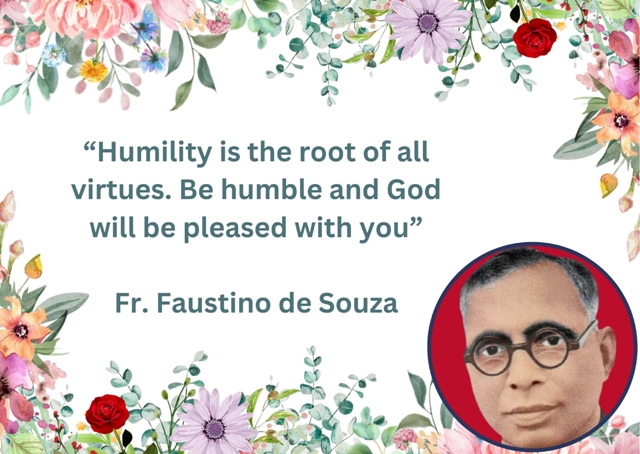
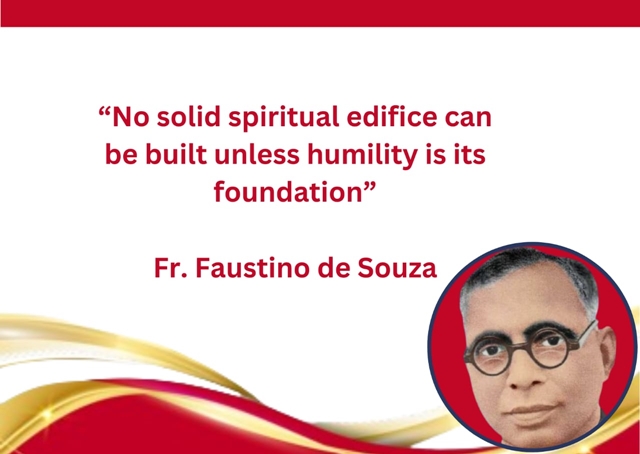

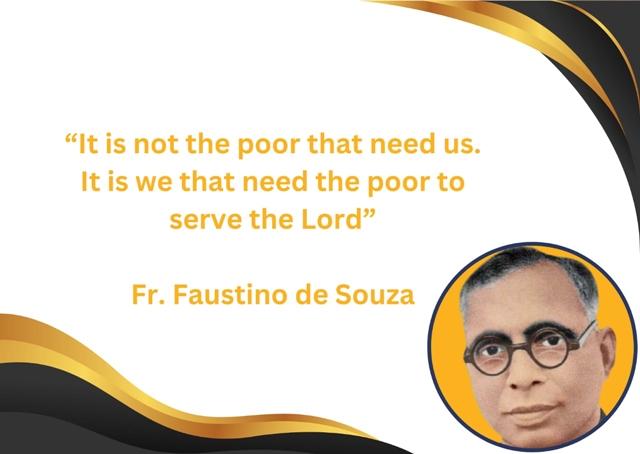



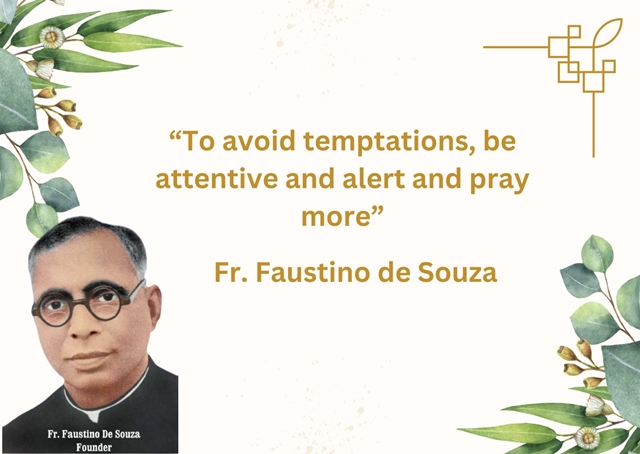

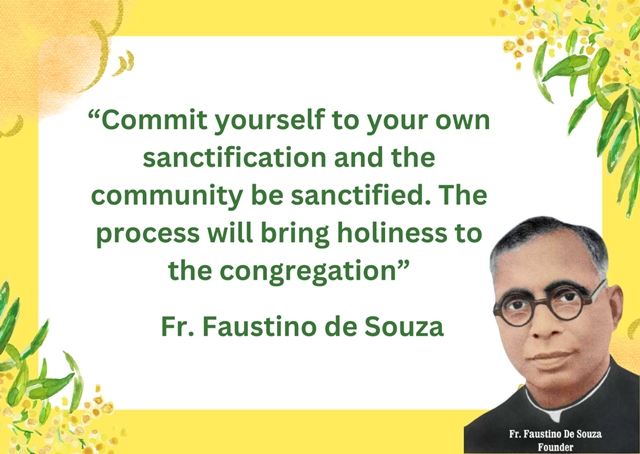


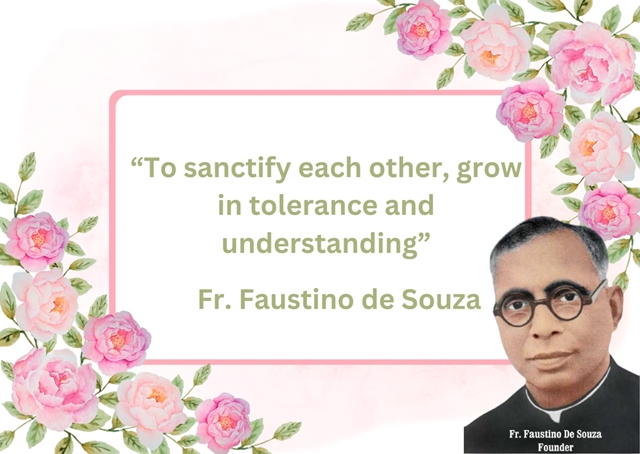
Like the biblical image of the ‘lamb taken to the slaughterhouse’, Fr Faustino chose silence and acceptance over self-defense. When faced with accusations or misunderstandings, he reportedly did not rush to justify the accusations and his credits or his good works. This profound detachment from his reputation allowed his work to speak for itself and served as a powerful, living example to his nascent community and the Church in Goa. He believed that humbling oneself would make one a ‘beloved of God and man’.
Igniting hope and empowering others
Fr Faustino was a zealous priest and a visionary who became a missionary of hope for the marginalised in Goan society. He recognised the spiritual and social void left by the previous suppression of religious orders and responded by founding the SFN Congregation in 1935 to serve local families and later desired to branch out to the neighbouring States.
• Uplifting the marginalised: His mission was particularly focused on the poor, orphans, and the aged. He actively took initiatives like opening schools and boarding houses in the outskirts to cater to troubled and broken families, ensuring their physical and spiritual well-being. By caring for the boarders, he instilled in them values and provided holistic education, transforming their circumstances and future. The tradition of distributing the sweet ‘godde'’on Founder’s Day is a beautiful reminder of how he encouraged and empowered students in their studies.
• A call for learning and communication: Fr Faustino keenly understood the importance of knowledge and communication in spreading the mission. He urged the sisters to learn languages and take up writing and communication ministry. He himself published spiritual booklets and saw writing as a crucial tool for propagating the good news. This encouragement for intellectual and communicative growth was a radical way of empowering the women of his congregation to become effective instruments of Christ’s love and hope.
Vocation as a reflection of inner life
For Fr Faustino, the number of vocations and the quality of missionary work were direct barometers of the community’s fidelity to God’s calling and the virtuous lives of the existing members.
• He saw decline in numbers or missionary effectiveness not merely as a practical setback, but as a symptom of a spiritual lapse. He believed that the lack of women responding to god’s call was often rooted in the lack of living according to god’s calling by those already in the community.
• His remedy was always a call to examine the inner self. He strongly emphasised that a sister’s external works of service must flow from an intense interior life of prayer, humility, and faithfulness to the rule. He urged them to:
o Examine their conscience: To identify and rectify any areas where their actions, thoughts, or attitudes were not aligned with Christ's teachings or the spirit of the Congregation.
o Renew their commitment: To live their vows with greater dedication and love, understanding that their lives—their joy, piety, and unity—were the most powerful advertisement for the religious life.
o Pray for vocations: By living virtuously, they would make their community a spiritually attractive and fertile ground for new vocations.
In essence, he believed the greatest recruiter for the community was the saintliness and sincere living of its current members. His approach highlighted that genuine spiritual health leads naturally to growth and effectiveness.
Fr Faustino De Souza’s legacy is a continuous source of inspiration for selfless service and altruism, reminding us that true greatness is found not in seeking respect but gaining it by virtuous living; not in seeking honour, but in genuine service and profound, Christ-like humility as his life wasn’t measured by external recognition.